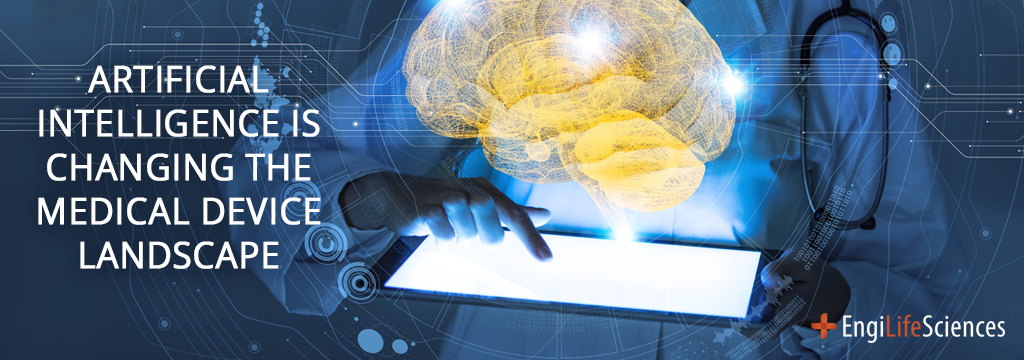The Food and Drug Administration (FDA) defines Artificial Intelligence (AI) within the Digital Health Criteria as “A device or product that can imitate intelligent behavior or mimics human learning and reasoning. Artificial intelligence includes machine learning, neural networks, and natural language processing. Some terms used to describe artificial intelligence include: computer-aided detection/diagnosis, statistical learning, deep learning, or smart algorithms.” (1)
AI itself isn’t new, but the increasing applications in the medical field have inspired the recently released the “Digital Health Innovation Plan” to address the balance between fostering digital health innovation while ensuring the safety of potential patients. This plan is designed to reshape the policies and processes used, modernize the tools used by the FDA to match digital health technology needs, and provide the clarity needed by manufacturers and developers to ensure they comply with policies and processes.(2) Additionally, modifications are being made within the National Evaluation System for health Technology (NEST) to provide a collaborative system that links and processes information between medical devices, electronic health records, clinical registries, and medical billing claims. This system will provide a more complete collection of data to enable healthcare providers and patients to make informed treatment decisions. (3)
“As AI undergoes major shifts, it reshapes our world, as well as our human experience, and as a result our understanding of AI is being challenged every single day. As it stands, AI should be used as an extension of humans, and implemented so as to foster contextually personalized symbiotic human-AI experiences. In other words, AI should be developed in a manner that is complementary to humans, whether it’s designed with the intent to assist or substitute. And, contrary to popular belief, AI isn’t designed to replace humans at all, but rather to replace the menial tasks performed by humans. As a result, our AI-powered society will open the door to new jobs and career paths, allowing man to unlock greater possibilities and reach new developmental heights. In short, AI will augment our human experience.” Charles-Antoine Richard, DZONE Zone Leader and Marketing Director, ARCBEES (4)
The potential applications of AI in medical devices are vast. These innovative technologies are compelling a change in the way advancements are regulated. The challenge remains in the ability for developers to advance the future of AI while complying with the necessary shifts in policies and procedures.
(1) Digital Health Criteria. FDA.gov. Retrieved 2018-04-11
(2) Digital Health Innovation Action Plan. FDA.gov Retrieved 2018-04-14
(3) National Evaluation System for Health Technology (NEST), FDA.gov. Retrieved 2018-04-12
(4) DZONE’s Guide to Artificial Intelligence: Machine Learning & Predictive Analytics. DZONE.COM/GUIDES

